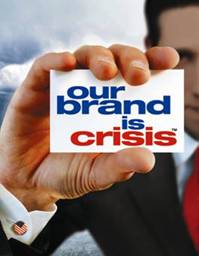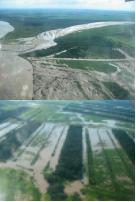From then TCR listserv:
REPSOL YPF: Andina Under Investigation for Crude Oil Smuggling
As previously reported, Spanish-Argentine oil company Repsol YPF denied allegations of oil smuggling in Bolivia through its subsidiary Andina.
Jorge Alvarado, head of Boliva's state-owned oil company YPFB, said in reports that the Bolivian government is investigating alleged oil smuggling by the company. Oil has been taken out without authorization, and for that documentation has been altered, Mr. Alvarado has said. He revealed that there are signs, according to customs, that Repsol has altered documents to take oil out of Bolivia without authorization.
According to local press, Bolivia's customs authority ANB presented formal charges, after months of investigation, against Petrolera Andina at the Santa Cruz department district attorney's office on Monday alleging that the company smuggled US$9.22 million worth of crude for export and falsified documents.
The charge states that Andina smuggled 230,399 barrels out of the country between June 2004 and July 2005, 85% leaving from the city of Yacuiba and the rest going through Arica.
With regards to the falsification of customs documents, the ANB report says that seven of the company's export declarations claimed higher export volumes than they were authorized to export by ministerial resolutions, according to local reports. Andina has denied in a statement the charges and maintains having paid all taxes and royalties. The district attorney's investigation will last six months.
Andina is 50% owned by Spanish oil major Repsol YPF (NYSE: REP), with the other half controlled by the Bolivian state.
****
On June 20, 2005, Moody's Investors Service upgraded the ratings of Spanish-Argentine oil company Repsol YPF's local subsidiary YPF S.A. Moody's upgraded YPF's senior unsecured rating to Ba3 from B1 and the unit's domestic currency issuer rating to Baa2 from Baa3.
YPF's foreign currency issuer rating of Caa1 remained unchanged, as it is constrained by the sovereign ceiling of Argentina. YPF's Corporate Family Rating (formerly known as the senior implied rating) is aligned with the foreign currency issuerrating at Caa1.
Tag: Bolivia,Bolivian oil,Repsol.





